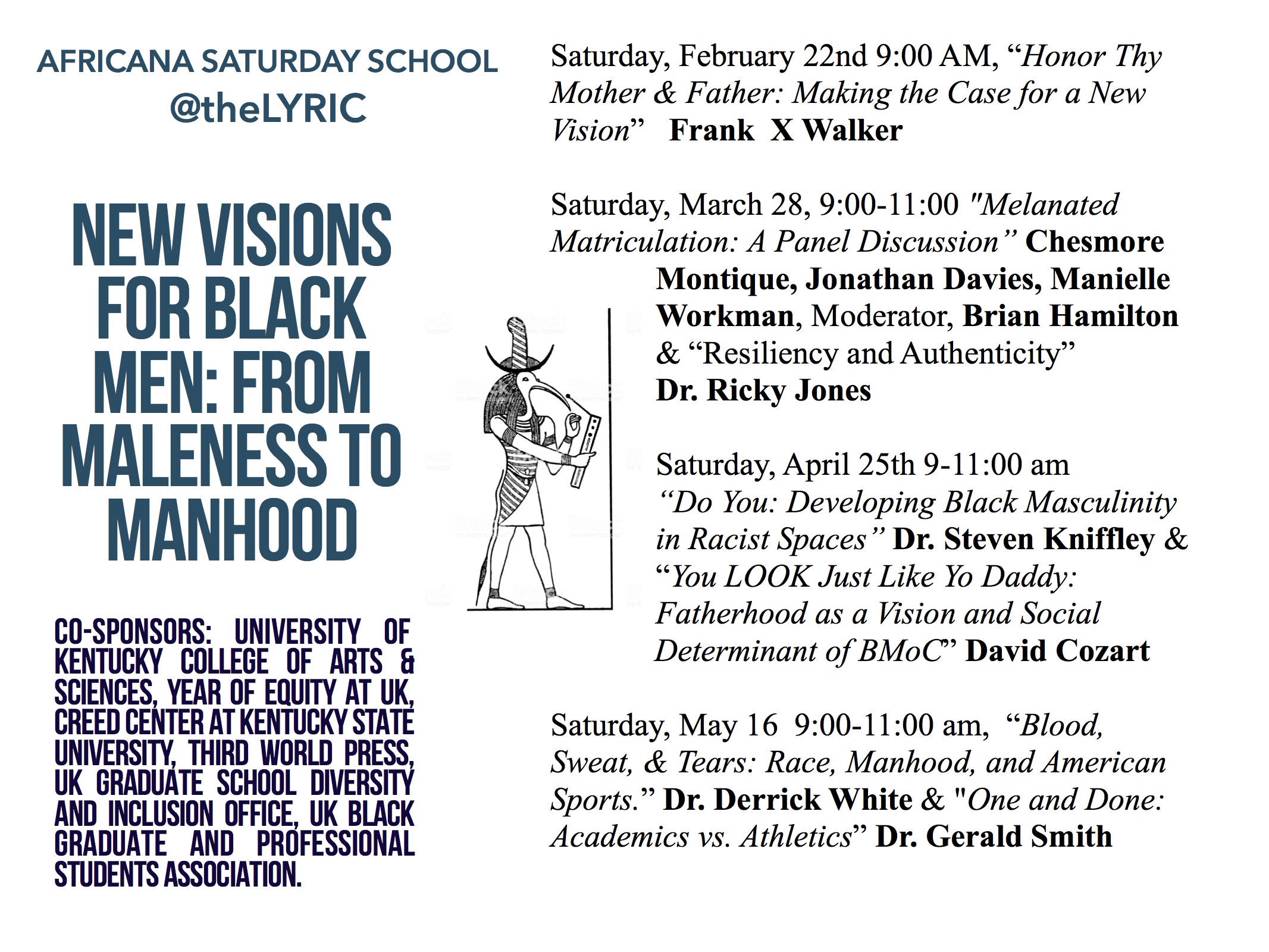Inclusive Community Lunch Series
For all graduate students, professional students, and postdocs who wish to discuss topics related to inclusion and diversity. Lunch provided.
For all graduate students, professional students, and postdocs who wish to discuss topics related to inclusion and diversity. Lunch provided.
For all graduate students, professional students, and postdocs who wish to discuss topics related to inclusion and diversity. Lunch provided.
For all graduate students, professional students, and postdocs who wish to discuss topics related to inclusion and diversity. Lunch provided.
For all graduate students, professional students, and postdocs who wish to discuss topics related to inclusion and diversity. Lunch provided.
Dr. Samuel Kelton Roberts, Jr., is Director of Columbia University’s Institute for Research in African American Studies (IRAAS), Associate Professor of History (School of Arts & Sciences) and Associate Professor of Sociomedical Sciences (Mailman School of Public Health). He writes, teaches, and lectures widely on African-American history, medical and public health history, urban history, issues of policing and criminal justice, and the history of social movements. His book, Infectious Fear: Politics, Disease, and the Health Effects of Segregation (UNC Press, 2009), demonstrates the historical and continuing links between legal and de facto segregation and poor health outcomes. In 2013-14, Dr. Roberts served as the Policy Director of Columbia University’s Justice Initiative, where he coordinated the efforts of several partners to bring attention to the issue of aging and the growing incarcerated elderly population. This work led to the publication of the widely-read landmark report, Aging in Prison Reducing Elder Incarceration and Promoting Public Safety (New York: Columbia University Center for Justice. November 2015).
Dr. Roberts currently is researching a book project on the history of drug addiction policy and politics from the 1950s to the present, a period which encompasses the various heroin epidemics between the 1950s and the 1980s, therapeutic communities, radical recovery movements, methadone maintenance treatment, and harm reduction approaches.
Dr. Roberts tweets from @SamuelKRoberts.
Dr. Samuel Kelton Roberts, Jr., is Director of Columbia University’s Institute for Research in African American Studies (IRAAS), Associate Professor of History (School of Arts & Sciences) and Associate Professor of Sociomedical Sciences (Mailman School of Public Health). He writes, teaches, and lectures widely on African-American history, medical and public health history, urban history, issues of policing and criminal justice, and the history of social movements. His book, Infectious Fear: Politics, Disease, and the Health Effects of Segregation (UNC Press, 2009), demonstrates the historical and continuing links between legal and de facto segregation and poor health outcomes. In 2013-14, Dr. Roberts served as the Policy Director of Columbia University’s Justice Initiative, where he coordinated the efforts of several partners to bring attention to the issue of aging and the growing incarcerated elderly population. This work led to the publication of the widely-read landmark report, Aging in Prison Reducing Elder Incarceration and Promoting Public Safety (New York: Columbia University Center for Justice. November 2015).
Dr. Roberts currently is researching a book project on the history of drug addiction policy and politics from the 1950s to the present, a period which encompasses the various heroin epidemics between the 1950s and the 1980s, therapeutic communities, radical recovery movements, methadone maintenance treatment, and harm reduction approaches.
Dr. Roberts tweets from @SamuelKRoberts.
 Part of the Africana Saturday School Double Lecture Series
Part of the Africana Saturday School Double Lecture Series
Dr. Steven Kniffley presents “Do You: Developing Black Masculinity in Racist Spaces”
The second hour features David Cozart's presentation, “You LOOK Just Like Yo Daddy: Fatherhood as a Vision and Social Determinant of BMoC”
 Part of the Africana Saturday School Double Lecture Series
Part of the Africana Saturday School Double Lecture Series
Dr. Steven Kniffley presents “Do You: Developing Black Masculinity in Racist Spaces”
The second hour features David Cozart's presentation, “You LOOK Just Like Yo Daddy: Fatherhood as a Vision and Social Determinant of BMoC”
A scholar of science, technology, and social inequality, Nelson is the author most recently of The Social Life of DNA: Race, Reparations, and Reconciliation after the Genome. Her publications also include a symposium in the British Journal of Sociology on history, genealogy, and the #GU272, and the books Body and Soul: The Black Panther Party and the Fight against Medical Discrimination; Genetics and the Unsettled Past: The Collision of DNA, Race, and History; and Technicolor: Race, Technology, and Everyday Life. In 2002, she edited “Afrofuturism,” an influential special issue of Social Text
The Digital In/Equalities Speaker Series brings leading scholars to campus to share their research and perspectives on issues of social justice across a range of digital topics, including apps, social media, geographic information systems (GIS), big data, genomic research and coding. While each of our proposed speaks across different software, hardware, and platforms, they are bound in their interrelated concerns about inequality and justice, both online and in everyday life.
A scholar of science, technology, and social inequality, Nelson is the author most recently of The Social Life of DNA: Race, Reparations, and Reconciliation after the Genome. Her publications also include a symposium in the British Journal of Sociology on history, genealogy, and the #GU272, and the books Body and Soul: The Black Panther Party and the Fight against Medical Discrimination; Genetics and the Unsettled Past: The Collision of DNA, Race, and History; and Technicolor: Race, Technology, and Everyday Life. In 2002, she edited “Afrofuturism,” an influential special issue of Social Text
The Digital In/Equalities Speaker Series brings leading scholars to campus to share their research and perspectives on issues of social justice across a range of digital topics, including apps, social media, geographic information systems (GIS), big data, genomic research and coding. While each of our proposed speaks across different software, hardware, and platforms, they are bound in their interrelated concerns about inequality and justice, both online and in everyday life.